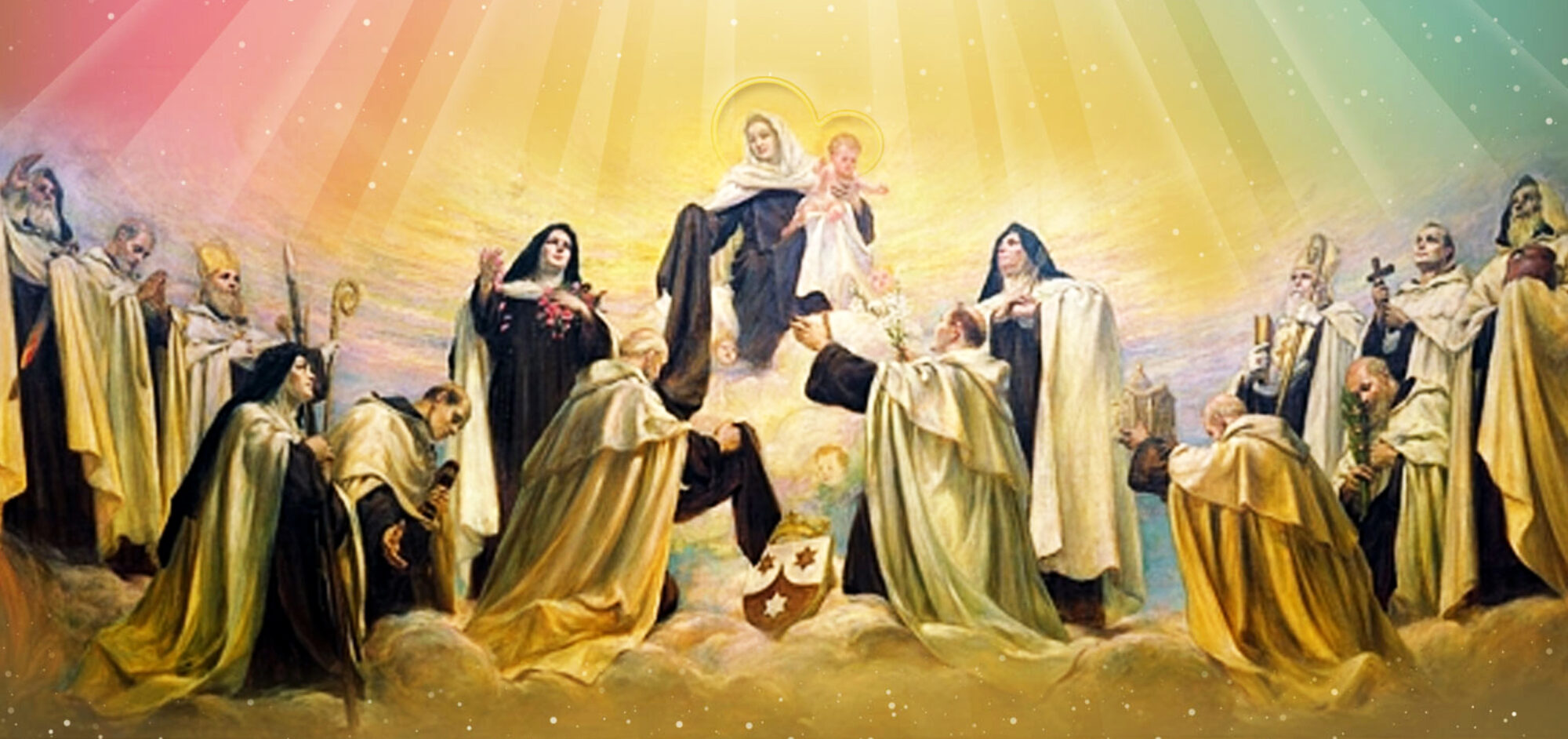
Blessed Maria Mercedes Prat (1880-1936)
Virgin & Martyr
Mercedes Prat was born on March 6, 1880, in Barcelona, Spain, baptized on the following day. Her parents Juan and Teresa died while she was still a child. She made her first Holy Communion in a school of the Society of Saint Teresa of Jesus on June 30th, 1890. From her childhood, she gave herself completely to God, whom she received every day in Communion. She displayed a great love for her neighbour and tried to foster this kind of love in others. During her years in school, she was known for her goodness and her dedication to school work, excelling especially in painting and needlework, which were areas in which she had a natural talent. As an orphan and the eldest daughter, she combined successfully her prayer life, her responsibilities in the home, her artistic talent and her apostolate as a catechist and a member of the Teresian Arch-confraternity.
In 1904, at the age of 24, Mercedes entered the Society of St. Teresa of Jesus in Tortosa, Spain. Entering the novitiate, she made her temporary profession in 1907. She was a religious “according to the heart of God:” prudent and truthful, calm and gentle in her reactions, having a natural goodness in all her dealing with others, but firm in character. God was her one love, and her love for God kept growing to the point where she would give her life for Him. In 1920 she was assigned to the motherhouse in Barcelona.
The sisters with whom Mercedes lived viewed her as a “true Teresian – a religious according to the heart of God.” She was prudent, truthful, gentle and kind in dealing with others while remaining firm in character. She lived entirely in submission to God’s will. God was her one love, and her love for God increased to the point where she would gladly have given her life for Him. In time, her desire would be fulfilled. For the next 16 years, Mercedes joyfully taught the local children at her community’s school, but the outbreak of the Spanish Civil War brought with it destruction and suffering.
In mid-July 1936, Mercedes and her sisters were forced to give up their school and flee. Mercedes was living in an attitude of submission to the will of God at the outbreak of the Spanish civil war. However, on July 23rd, Mercedes, together with another sister were arrested. Mercedes was given the opportunity to witness the depth of her love of God and self-surrender. When asked by the militia to identify herself, she replied that she was a Religious and a teacher. “Do you realize that you can be shot for that?” Mercedes and the sister who was with her were well aware of it. “They are going to kill us,” she had said when leaving the Mother House. “But let us go, I must obey because it is the will of God.” The two sisters endured hours of questioning, intimidation and threats, yet they refused to recant their statement that they were religious sisters, fully aware that for this, they would suffer the penalty of death.
The 23rd of July was a long day for Mercedes and her companion. Finally, at dawn on July 24th, on the road to Rabasada, the firing squad found her with a prayer on her lips. A few shots rang out. Mortally wounded, she repeated between cries of pain: “Jesus, Joseph, Mary.” The last words on her lips were those of the “Our Father”: “Forgive us…as we forgive…” To the Sister who closed her eyes, she seemed “an angel of sorrow.” Militiamen heard her cries of pain and shot her dead at dawn at 4:00 am on 24 July 1936.] She was buried in Barcelona. Gioacchina Miguel, the other sister arrested and shot alongside Mercedes, lived through the ordeal and became the main witness for the beatification process.
The beatification process commenced in 1969 – under Pope Paul VI – in an informative process that concluded in 1970 and accorded her the title of Servant of God as the first stage in the process; one of the main witnesses was the nun Gioacchina Miguel. The Congregation for the Causes of Saints validated the process in Rome on 21 June 1985 and assumed charge of the Positio in 1987 for further investigation.
Her beatification received the approval of Pope John Paul II on 21 December 1989 after he determined that Prat had indeed died “in odium fidei” (‘through hatred of the faith’ by her killers) and beatified Prat in Saint Peter’s Square on 29 April 1990.
(This article compiled by Fr Regan D’Souza OCD from various internet sources and books)

